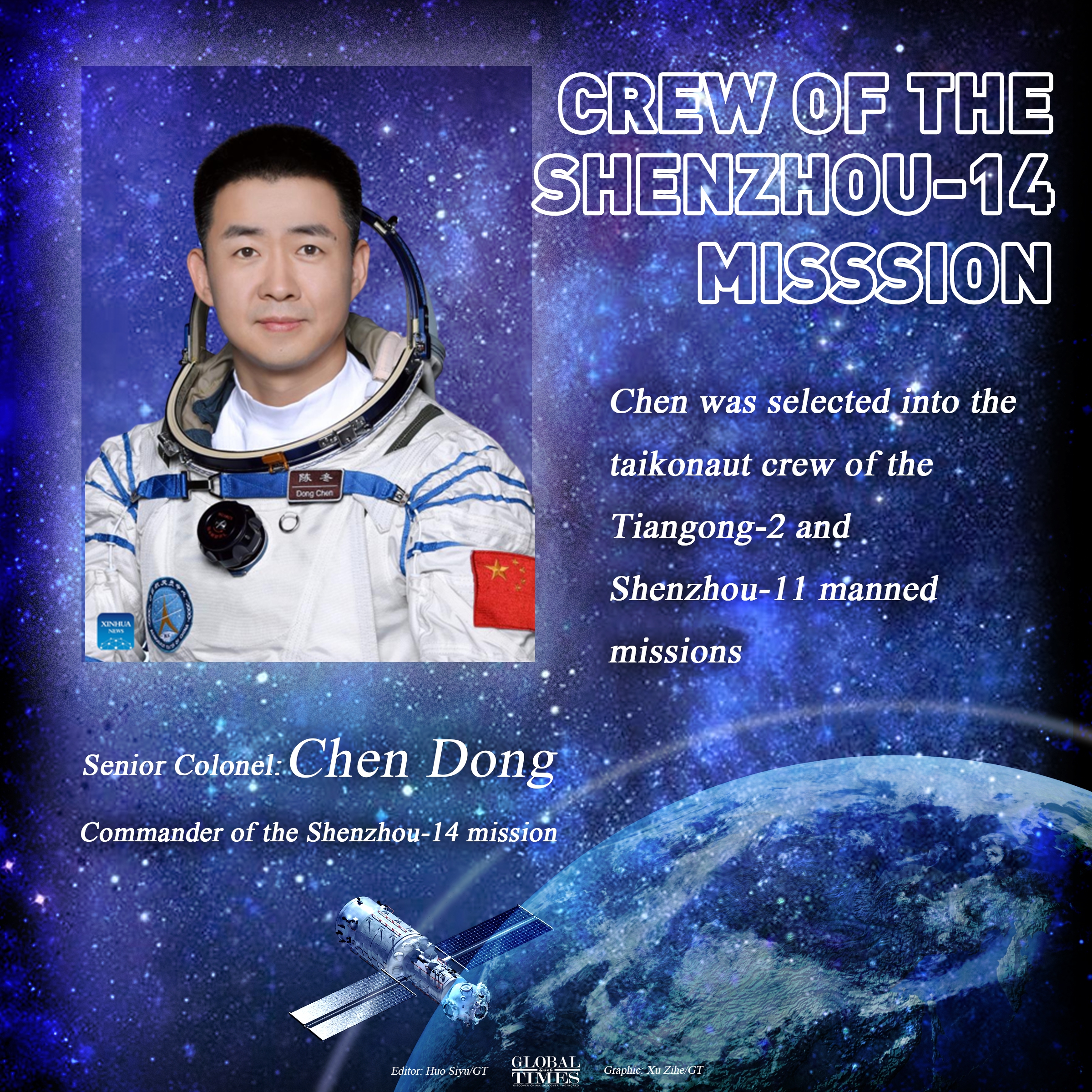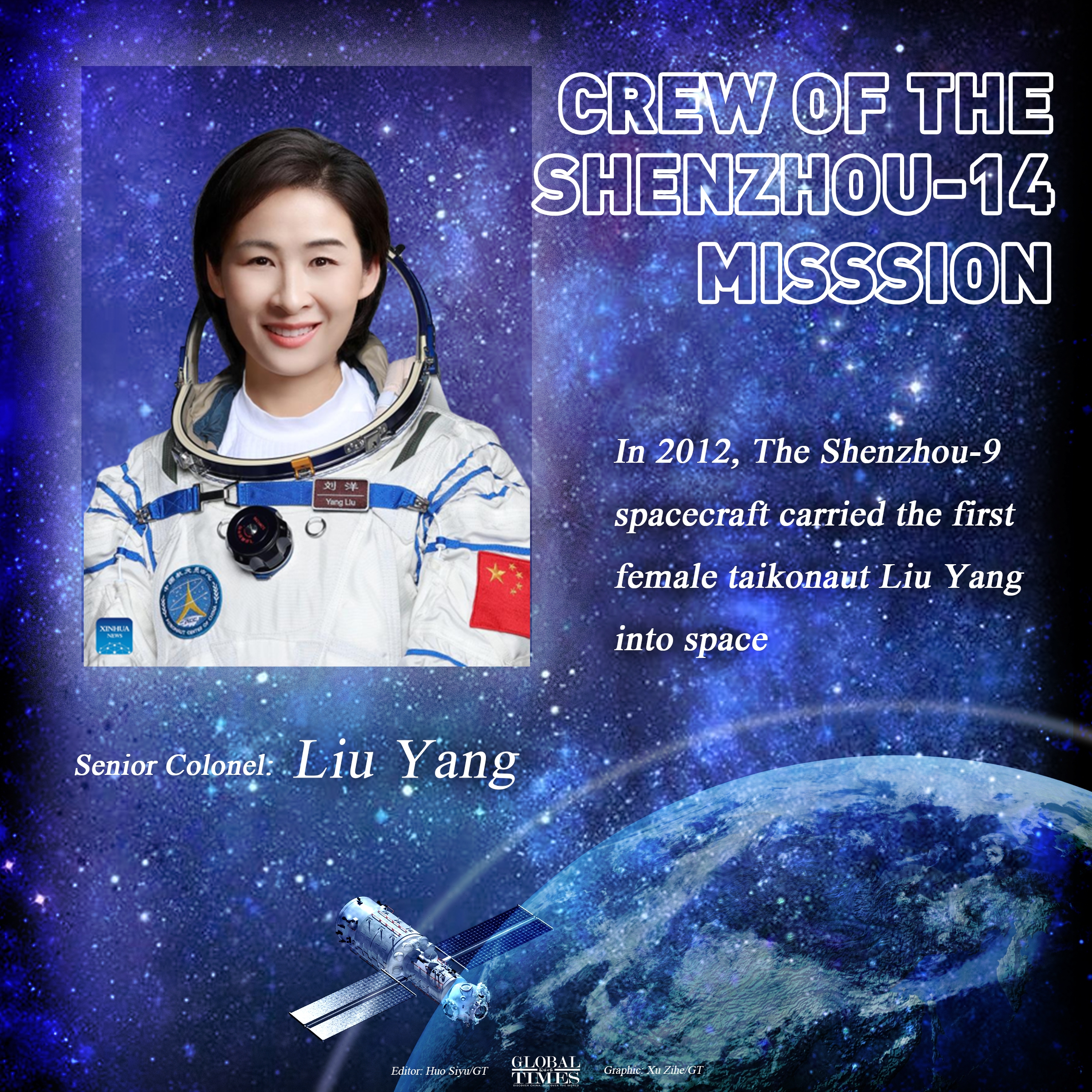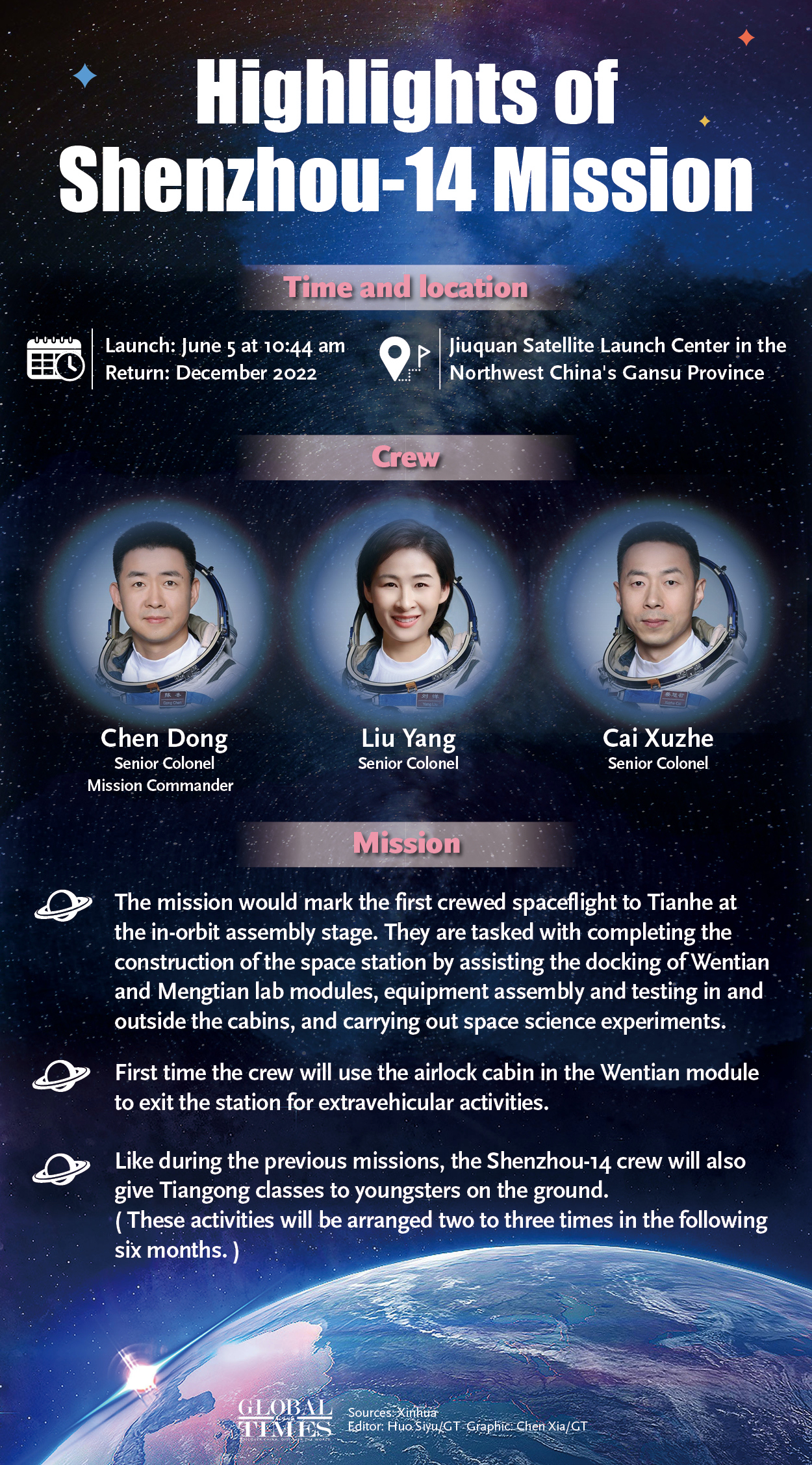BEIJING: The Shenzhou-14 manned mission is slated to be launched at 10:44 on Sunday morning from the Jiuquan Satellite Launch Center in Northwest China’s Gansu Province, authorities announced on Saturday. The three crew members are Chen Dong, Liu Yang and Cai Xuzhe, with Chen as the mission commander.

During the crew’s 6-month stay at China’s Tiangong space station, they will receive a number of “visitors” – the two lab modules, the Tianzhou-5 cargo spacecraft and the Shenzhou-15 manned mission. They are scheduled to return to Earth in December, China Manned Space Agency said at Saturday’s pre-launch press conference.

The Shenzhou-14 crew for 6-month space station mission
Senior Colonel Chen Dong, 44, is a veteran taikonaut who visited space in China’s Shenzhou-11 manned space mission in 2016 and set the previous record for the longest stay in space by a Chinese astronaut at 33 days (in the Tiangong-2 space lab).
The record was broken by Shenzhou-13 taikonaut Wang Yaping in 2022, and Chen would be able to further surpass that with another 180 days of stay in space in the Shenzhou-14 run.

The Shenzhou-14 crew for 6-month space station mission
Senior Colonel Liu Yang, the female crew member of the Shenzhou-14, also 44, went to space in 2012 in the Shenzhou-9 mission, and is in fact the first Chinese woman to do so. At a press conference on Sunday, she said that for the upcoming 6-month stay, she and her teammates are looking forward to celebrating for the first time the birthday of their motherland as well as the Mid-Autumn Festival, a holiday for the reunion and gathering of the Chinese people.

The Shenzhou-14 crew for 6-month space station mission.
Senior Colonel Cai Xuzhe, 46, will be making his space debut during the upcoming mission. “For this day, I have prepared 12 years. I feel honored and proud to have this chance to go into space for my country,” he said.
The Shenzhou-14 crew are, together, the second batch of taikonauts China has trained.

Highlights of Shenzhou-14 Mission
The mission would mark the first crewed spaceflight to Tianhe at the in-orbit assembly stage. They are tasked with completing the construction of the space station by assisting the docking of Wentian and Mengtian lab modules, equipment assembly and testing in and outside the cabins, and carrying out space science experiments.
The basic structure of the space station, consisting of the Tianhe core cabin and the two lab modules, will be completed during this mission, thus establishing a national space laboratory.
Like the previous missions, the Shenzhou-14 crew will also give Tiangong classes to youngsters on the ground, and will for the first time use the airlock cabin in the Wentian module to exit the station for extravehicular activities. These activities will be arranged two to three times in the following six months.
The Long March-2F Y14 carrier rocket tasked for launching the spacecraft will soon begin fueling propellant. Once the craft arrives at the space station, it is expected to conduct a fast and autonomic rendezvous and docking with the radial port of Tianhe.
The Wentian lab module will be launched in July and Mengtian in October, Hao Chun, director of China Manned Space Agency, said in April.
The Wentian lab module is equipped with the same taikonaut living facilities as the Tianhe core module, including three sleeping areas, a toilet and a kitchen. Wentian and Tianhe can support six taikonauts living in space during the rotations of two spacecraft crews.
The three-member Shenzhou-15 mission will meet the Shenzhou-14 crew in space for rotation prior to their return to Earth, and spend about one week in space together.
Wentian has an airlock through which taikonauts can exit, and a small robotic arm which can be used alone or combined with the large mechanical arm of the space station.
The other lab module, the Mengtian, also has a cargo airlock. The small robotic arm on the lab module can grab payload via the airlock and install them onto the experiment platform outside the cabin.























